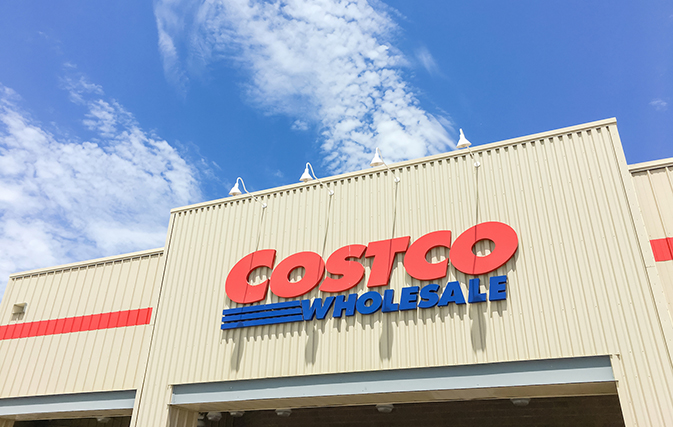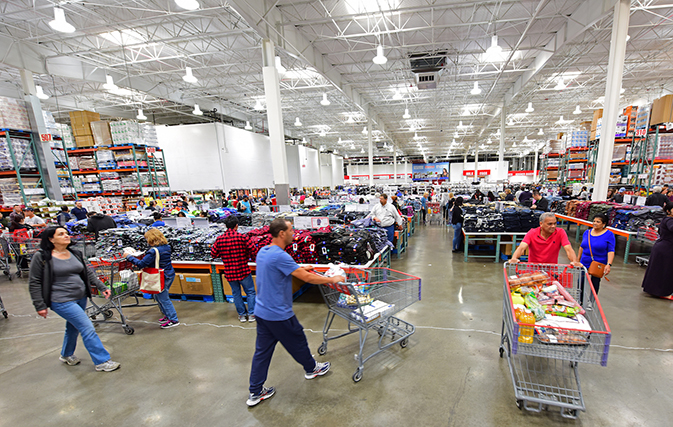This story originally ran in the November 29, 2018 issue of Travelweek magazine. To get Travelweek delivered to your agency for free, subscribe here.
TORONTO — Evidence of the latest threat to the Canadian retail travel sector is probably right in your own wallet. It’s your Costco membership card.
If you have one, you’re not alone. Costco says it serves more than 10 million members across Canada (quite a feat in a country with a population of 36 million) and its annual sales in Canada now top $15 billion, making it one of the largest retailers in the country.
The U.S.-based company now has warehouses in just about a dozen countries worldwide, with the count in Canada hovering around 100.
Everyone likes to save money, whether they’re buying a pallet of paper towels or a lifetime’s supply of ketchup. You can buy a diamond ring at Costco, a snowplow, even a casket. So why not travel?
Traditional travel agents making a living in the Canadian market have been successfully fending off disruptors for decades now. And no one selling travel in this market expects an easy go of it. The problem with Costco Travel, which operates under the Costco umbrella, isn’t so much its volume of sales, or even its extensive (and growing) reach. It’s the alleged extreme rebating and undercutting, say agents, who are fed up with the wholesale giant.
One agency exec says his company lost a $63,000 Regent Seven Seas Cruises booking to Costco Travel, and was at risk of losing a world cruise booking on another cruise line, until they saved it by convincing the cruise line to help share the burden of a US$4,000 rebate, “to salvage the customer to stay with our Canadian agency, rather than move their large booking to the U.S.”
As he points out, discounting has been around for years. “We all discount, perhaps up to 5%, to match a competitive quote, or to reward a loyal client who may have referred another booking, or perhaps to make up for an issue that happened on their last trip. That is just a normal part of doing business, which we all understand, and most do accept.”
But, he says, rebating “is on the far extreme of discounting”, and extreme rebating “is a not-so-hidden virus.”
He charges that cruise lines who announced no-discounting policies – to put an end to undercutting the selling price – left the back door open for rebating that discount back to the client.
In the case of Costco, he alleges, “they creatively rebated by giving their cruise customers a Costco gift card for the value of the 10% rebate that they were doing, [a practice that had been] shut down by the cruise lines’ no discounting policy.”
That rebate amount may have been driven down to 5% after industry pressure, but has since crept back up to 10%, he charges.
Costco built its business on a pared-down wholesale model, short on frills and long on savings. Not surprisingly, it doesn’t have a PR or media department, and an executive in the company declined to give an interview. The Costco Travel website says the company uses its “buying authority to negotiate the best value in the marketplace, and then pass on the savings to Costco members.”
For Costco buyers with an Executive Membership, purchases made directly from Costco Travel earn a 2% reward (up to $1,000) on qualified purchases, applied after travel is completed.
Costco Travel works with the full range of suppliers, not just cruise lines. Some say the fact that Costco is a membership model, or shopping club, makes for a gray area. But a number of suppliers have taken a stand nevertheless, saying they won’t partner with companies who don’t play by the rules, if it’s to the detriment of other agency partners.
Collette spokesperson Amelia Sugerman says Collette made a decision to walk away from discounters such as Costco in a strategic effort to remain committed to travel agents and partners.
“We recognize that agents work really hard for their business and that it’s our responsibility as a guided travel provider to support their commitment to the industry,” says Sugerman. “We want to protect their profession and don’t want to deteriorate a travel agent’s profession by rebating commission.”
She adds: “We know that travel professions are experts and not only do we want to protect their livelihood but we want to drive business to them instead of online discounters who don’t have the expertise that travel professionals do. We really see online discounting and commission rebating as an industry threat and are committed to improving the lives of agents and the agent profession overall.”
Viking Cruises made headlines in October 2017 when it pulled its product from Costco Travel, citing rebating concerns. Another major player, Sandals Resorts, has also declined to work with Costco Travel.
Major travel retail groups have entered the fray too. TL Network’s Christine James, VP Canada, says: “I cannot speak to the practices of other travel retailers. I can tell you that we view it as extremely important to respect and support the requirements set forth by our valued supplier partners.”
Flemming Friisdahl, who heads up The Travel Agent Next Door, points out the industry has come a long way since the days when suppliers ‘going direct’ was the big concern.
“I have always said we cannot limit the number of competitors, however we can make it an even playing field for everyone,” says Friisdahl. “I have no issue with [Costco Travel] selling the product, however they are a membership based organization and they make significant money through memberships, while retailers do not have this option. So it is not a fair playing field.”
He adds: “What really bothers me is that some suppliers give Costco special pricing and this is completely unfair and it will hurt the suppliers long term. If you give someone a price that is 20% cheaper than anyone else, ‘as long as they only market to their members’, then the consumer will go there and skip the local agent. Long-term Costco will continue to ask for more concessions and they will be granted. So make it a fair playing field, allow everyone the same net or published fare and then let the best agent/agency win the business.”
Retailers have a voice, both through ACTA and through what suppliers they choose to sell, he adds. “But how many of them take a stand? If we as agents don’t stick together and voice our concerns to ACTA and also stop selling suppliers that don’t treat us as equals we will continue to be taken advantage of.”
Heather Craig-Peddie, VP, Advocacy and Member Relations for ACTA, says several ACTA members “have raised concerns about Costco Travel and what appears to be discounting on packages.”
In one incident, when ACTA questioned the supplier involved, it was ACTA’s understanding that the low prices “were not those of the supplier”. The supplier sold Costco the airline seats, says Craig-Peddie, and Costco Travel then packaged them up with other product, potentially at different contract rates based on their buying power in the U.S. In that case, ACTA got a quick response from the supplier, says Craig-Peddie.
While Costco Travel’s reach and high-profile presence are no doubt generating new business and new bookings, other bookings are the result of a lost sale by a traditional agency, who couldn’t compete on price. As with just about everything in this industry, this battle will come down to service, smarts and strategy. It’s a battle traditional travel agents have fought before, and won.


